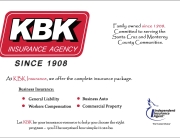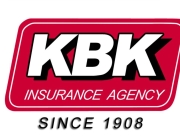You just invested in a commercial property. Along with your investment you also purchased property and liability insurance(Commercial Real Estate Insurance) because the bank required it for your loan, but did you review your policy? Do you understand how it can provide protection for your assets? Even if you are not required to purchase insurance, it still is a legitimate part of your business plan.
When properly written and reviewed consistently, insurance can help your business avoid financial catastrophe if and when the worst happens.
There are 2 important parts when designing the insurance plan for your investments:
- Property and Liability
In each of these parts there are many different pieces that need to be considered for commercial real estate.
Property
Building Limits
The valuation completed, called a replacement cost calculator, will give an estimate of what it would cost to rebuild your building. This valuation will help determine a limit for each building at a property. When establishing the amount of coverage for your buildings make sure that any valuation estimates completed reflect the characteristics and features of your building. If your buildings have unique items like an interior sprinkler system, elevator, or other features than you need to account for this in your valuation estimate. Some questions to ask after establishing your building limit:
- Are your buildings insured at replacement cost?
- Does your policy contain a co-insurance clause for your buildings?
- Does your policy include coverage for ordinance or law?
- If you have multiple buildings is blanket building coverage available?
- Do you need earthquake or flood insurance?
- Most standard policies exclude coverage for earthquake and flood.
Some options may make the policy less expensive, but could cost you more when a loss occurs.
Other Structures and Business Personal Property Coverage’s
Make sure to protect against loss of detached structures, carports, and garages. If there are items within the property units such as refrigerators, stoves furniture or other items, then you need to obtain coverage for these as well. Some policies may automatically provide some coverage for these items, however you should still confirm whether or not you need to include coverage for these items.
Business Income Coverage, or Loss of Rents
This provides coverage for your rental income if your tenants are forced out of your property because of a covered loss. Some policies offer different time limits such as 12 months or 24 months. Other policies may offer an endorsement to be purchased at a specific limit. This is protection all real estate investors should consider.
Property Deductible
The deductible you choose should be an amount that you are comfortable with paying when a loss occurs.
- Increasing your deductible will generate a lower premium
- A higher deductible may be justified if you have a favorable loss history at your property.
While increasing your deductible may create some savings in the form of insurance costs, you still need to consider if the increase is worth it. Some questions to ask yourself and your agent:
- How long does it take to recoup the difference in the deductible increase? If the savings can cover the difference within 3-5 years it may be worth it.
- What is your comfort level with out of pocket expense when a loss does occur?
- Are your revenue levels high enough to support a higher deductible?
Liability
General Liability coverage will protect your business from claims involving bodily injury or property damage up to your policy limit. The more real estate or the larger assets in your possession, the more you should consider a higher limit of liability coverage. How much liability coverage should you purchase? My previous article Do you have $1,000,000? includes more details on what to consider when establishing a liability limit. You should carry as much liability coverage as you can afford that makes sense for your operations. The cost can be minimal when increasing your liability limits.
Manage Your Insurance
Getting started with commercial real estate investing is exciting! Make sure your real estate holdings are well protected early on. As your portfolio grows and changes so should your property and liability insurance to match the needs of your real estate holdings. Review your policy annually to account for any substantial changes that may need to be made to your policy.




